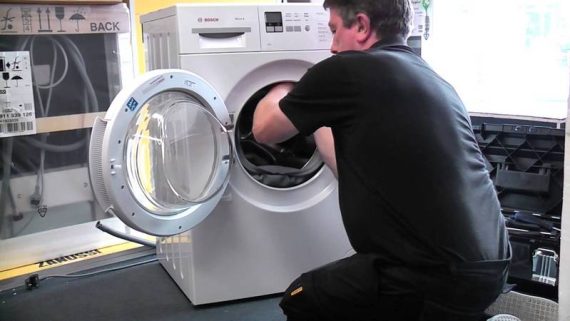When your washing machine starts acting up, the first question that often comes to mind is,” Should I repair or replace it?” Making this decision can be tricky, as it depends on several factors, such as the cost of repairs, the machine’s age, and your personal preferences. Here is a guide to help you weigh your options and make an informed choice.
Signs Your Washing Machine May Need Repairs
Washing machines are complex appliances with numerous moving corridors, so they can encounter various issues over time. Some common problems that might call for repairs include:
- The machine is not spinning or draining properly.
- Loud or unusual noises during operation.
- Leaks around the base or hose connections.
- Foul odours that persist even after cleaning.
- Error codes are displayed on the control panel.
Still, addressing it promptly can extend the life of your washing machine if the issue is minor and repairable. However, it is essential to weigh the repair cost against the machine’s overall value.
The 50 Rule
One popular guideline for deciding between repair and replacement is the 50 rule. However, replacing it may be the better option if repairing your washing machine costs more than 50 of the cost of a new bone.
This is especially true for older machines nearing the end of their expected lifespan.
Consider the Age of Your Machine
The average lifespan of a washing machine is about 10 – 15 years. However, fixing it generally makes sense If your machine is under five times old and the repair cost is reasonable. Still, if your machine is over 10 years old and passing frequent issues, replacement may be more cost-effective in the long run.
Aged machines also tend to be less energy-effective, meaning a new model could save you money on utility bills over time.
Energy effectiveness Matters
Modern washing machines are designed to be more energy—and water-efficient than aged models. Upgrading to a new machine with an ENERGY STAR rating can significantly reduce your environmental impact while lowering your yearly energy bills. However, replacement might be the smarter choice if your current machine is outdated and inefficient.
The Cost of Replacement
Buying a new washing machine is a significant investment, but the long-term benefits can outweigh the upfront cost. When evaluating its value, consider the features and warranty of a new machine. While the initial price may feel high, a dependable, effective appliance can save you money over its lifespan.
Consult a Professional
Sometimes, diagnosing the problem or estimating repair costs is difficult. A professional technician can help assess the damage and give an accurate repair estimate. Their expertise can also give you peace of mind when deciding whether to repair or replace your washing machine.
Call Daniels Appliance Services!
Deciding whether to repair or replace your washing machine depends on its age, the extent of the problem, and your budget. Considering these factors, you can make the best decision for your home and wallet.
However, if you’re ever in doubt, contact Daniels Appliance Services for expert advice and professional repair services. With our help, you can enjoy a washing machine that runs smoothly and efficiently for years.
FAQs
How do I know if my washing machine is worth repairing?
If the repair cost is less than 50 per cent of the price of a new machine and the machine is less than 10 years old, it’s generally worth repairing.
What are the signs I should replace my washing machine?
Frequent breakdowns, excessive repair costs, poor energy efficiency, and an age of over 10 – 15 years are clear signs to consider a replacement.
Are new washing machines more energy-effective?
Modern washing machines with ENERGY STAR ratings use less water and electricity, making them more environmentally friendly and cost-effective.
Can I fix common washing machine problems myself?
Minor issues like clogged filters or loose hoses can frequently be fixed at home, but a professional technician should handle major problems.
How much does it generally cost to repair a washing machine?
Repair costs vary depending on the issue but typically range between 100 and 400. Consult a technician for an accurate estimate.

